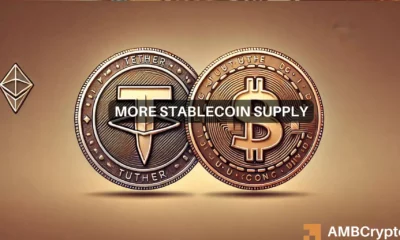
It’s been only 7 or 8 years when cryptocurrency exchanges started emerging and since then they have been still proliferating. This is a traditional start-up period in this industry – the trial and error period. On the other hand, the first fiat money exchange was established back in medieval Italy, so not all issues can be referred to as ‘teething problems’. In this article, we are going to look at some issues of great concern for most traders.
Why are we doing that? Traders who have read through this article will have readily formulated requests to address the platforms they deal with via different forums and in tickets for help desk teams. In addition, we hope to influence the public opinion in favor of a certain unification of the cryptomarket, which is now suffering from fragmentation.
The amount you can get at the best price is small because liquidity is distributed among platforms.
Your desire to sell something does not mean it will necessarily be purchased. Supply and demand often do not meet.
The ability of assets to be quickly sold at a price close to the market price is called liquidity. Evidently, the larger the market is, the easier it is to find a buyer for a large volume of any product including currency. Thus, the larger the market is, the higher liquidity is, which is the most important indicator for traders with large transactions.
As noted above, today there are many cryptocurrency exchanges in the market, and their number is growing. This market is heavily fragmented, so every individual exchange is not able to offer a large volume of trading and, consequently, high liquidity for every position. You cannot simply create an order at one exchange and make it at another exchange. So we see that the market fragmentation is a limitation for trading transactions.
A high spread due to low liquidity
A spread is a difference between the price announced in a request for purchase and the price actually paid for one position. A spread depends on the liquidity: low liquidity is a high difference which means you will buy and sell assets at less profitable prices; high liquidity is a low difference which means it is easier to make a profit from buying and selling.
The issue with the amount of spread has its origins in liquidity, which is in turn caused by the market fragmentation. When you deal with minor platforms, your chances to make profit fall drastically compared to dealing with a large exchange or a shared exchange platform.
Large trading amount is a risk of price shift at a separate platform
Trading in large volumes is the best way how to make a higher profit. However, the larger your order is compared to the size of the exchange, the more likely it will affect the prices. To put it simply, trading in large volumes becomes less predictable and less profitable.
Not to suffer from price fluctuations (especially of speculative nature) choose an exchange with a relatively high capacity, which will easily “digest” your orders and will not force you to trade at prices which are far from the desired ones.
If a platform or a group of platforms chosen for trading is large enough, you can expect to sell a large number of cryptocurrencies without a risk of price shift if your amounts are insignificant for this platform or you will be able to sell at the same price for a longer period.
Need to monitor several platforms
Success in trading is heavily dependent on how much information you have. To find best offers you need to monitor many platforms at once – the quicker you are, the more likely you will leave behind other traders and make best profits.
On the Internet, you can find various apps which can be used to monitor positions at various cryptocurrency exchanges. They are usually used for arbitrage trading. Their common disadvantage is that they allow only tracking positions rather than trading.
For real-life trading, you will need similar applications offered by exchange platforms – every exchange platform has its own application. A variety of application interfaces, which are not necessarily user-friendly, is another disadvantage for many platforms.
Roman Shirokov, co-founder and CEO of LIQNET told us about his experience in solving the above issues:
“At initial stage, our team planned to establish a mainstream cryptocurrency exchange. But soon we identified the fragmentation issue caused by the fact that cryptocurrencies in the world were traded at various platforms. In addition, we understood that many platforms had their own issues, for instance, reliability, inconvenient tools or restrictions for trading from some countries. These barriers significantly reduced the choice of exchange platforms and caused limited liquidity.”
Finally we came to the conclusion establishing just another mainstream exchange which abounds worldwide is not what the market needs. The market needs an impulse to help it move to further development.
LIQNET platform, which is a liquidity aggregator uniting flows from various platforms in one order book rather than a classic exchange, should resolve this issue.
The unique character of the liquidity aggregator is demonstrated by the LEN technology, which allows collecting and uniting through APIs data on requests to purchase/sell from numerous cryptocurrency exchanges in any place in the world.
Add your comment to tell us about the issues you’ve encountered. Share your solutions to help your colleagues and to improve the market.
For more information about crypto currency exchanges click here.






